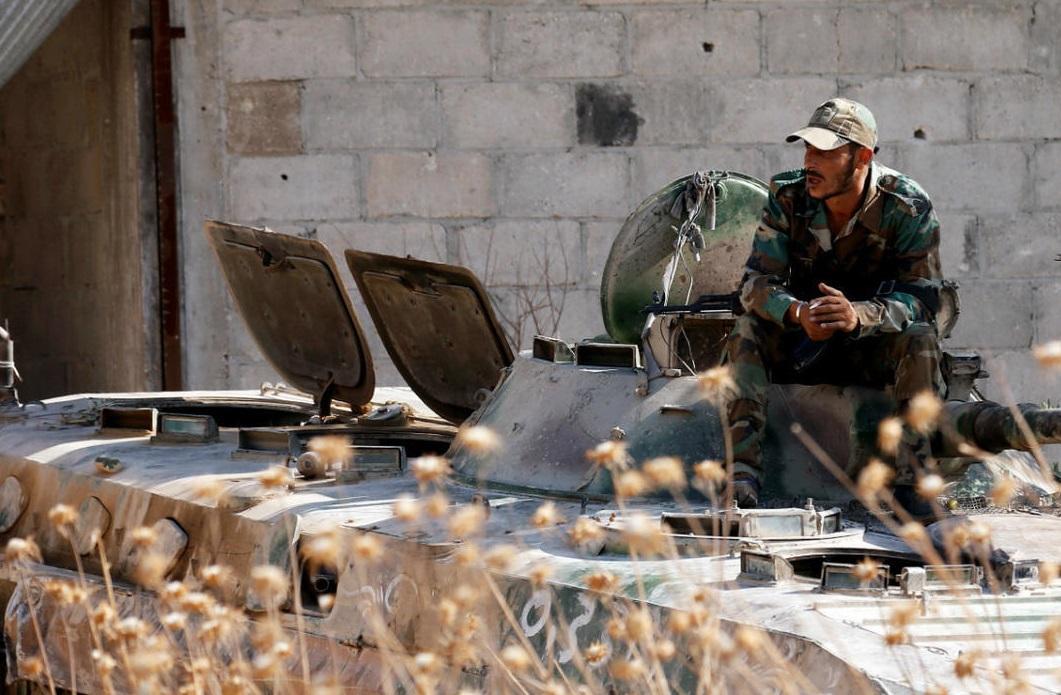
The war in Libya will go on as military commander Khalifa Haftar left Moscow without signing a ceasefire agreement, the speaker of the pro-Haftar House of Representatives in the eastern city of Tobruk said on Jan. 14.
"The ceasefire in Libya is over, and the war will resume," said Aguila Saleh Issa, speaking to Arab satellite television station Al-Ghad.
“They responded positively to the ceasefire because of their respect for Russian President Vladimir Putin,” Issa said, referring to Haftar's delegation at the ceasefire talks.
Touching on the failure of militias loyal to Haftar in making headway in clashes against forces of Libya's UN-recognized government, Issa said: "Turkey's intervention delayed us in achieving results in the fight to take back Tripoli."
Haftar forces launch airstrike near Tripoli
Forces loyal to renegade commander Khalifa Haftar launched missile strikes to the south of Libya's capital, the military spokesman for the UN-recognized Government of National Accord (GNA) said.
Muhammed Kununu said in a statement that the Salah al-Din and Ramla regions south of the capital were hit by missiles, according to the media office of the Burkan Al-Ghadab (Volcano of Rage) operation.
Pro-Haftar mercenary soldiers deployed in the region and drones operated by the United Arab Emirates flew over Tripoli, Kununu said.
He said government forces are strong enough to respond to the Haftar militias and called on people who migrated from the region not to return to their homes during the clashes.
On Jan. 12, the warring sides in the Libyan conflict announced a ceasefire in response to a call by Turkish President Recep Tayyip Erdoğan and Russian President Vladimir Putin, and they gathered Monday in Moscow to sign an agreement aimed at ending hostilities and starting political dialogue.
Following talks in Moscow, the head of the GNA, Fayez al-Sarraj, signed a ceasefire deal late Monday, but Haftar left for Libya without signing it after asking for more time to consider it.
'Hope for Libyan cease-fire result of Turkish efforts'
Meanwhile, Turkey's presidential spokesman on Jan. 14 said Ankara's foreign policy strategy brought balance to the Libyan conflict through a cease-fire, which became possible thanks to President Recep Tayyip Erdoğan's efforts.
"It's actually our diplomatic efforts and our support for the Government of National Accord [GNA] that has brought a degree of balance to this conflict, and as a result of which we have the cease-fire," Ibrahim Kalın told CNN International in an interview where he spoke on developments in Libya and the aftermath of the killing of a senior Iranian general.
Asked about Turkey's strategy in Libya -- where the UN-recognized GNA fights self-styled Commander Khalifa Haftar's forces -- Kalın said Turkey had "long-standing relations" with Libya which he referred to as "key" regional player and escalations there would impact the neighboring countries and Europe.
"What happens in Libya doesn't stay there. It affects all the neighboring countries, Algeria, Tunisia, Sudan and others, but also the Mediterranean," he said, adding Europe also became concerned about the flow of migrants and weapons.
The senior official went on to say that the conflict in Libya, similar to the case of Syria, had been continuing for years, therefore it was high time the international community stepped in to broker peace.
He stated that the Haftar side repeatedly violated agreements and was the responsible party of the conflict and violence, however, Ankara did not rule it "out of the game", adding that is the reason behind Turkey's presence in cease-fire talks in Moscow held on Jan. 13 after a call by the Turkish and Russian presidents."
We're trying to bring an end to this conflict where you have so many different factions, tribes, and of course, international actors, stakeholders and many others," he said and stated that the situation in Libya was "fragile" and Turkey was in contact with the U.S., Italy and other actors.
Kalın stressed that his European counterparts gave credit to Turkey with regard to the cease-fire while some countries, including Egypt, provided weapons for Haftar's forces whereas mercenary and militia elements came from Sudan, Niger, Chad, and some other countries.
"They're the ones who are fueling this conflict. And now they turn around and blame us.
If the EU wants to be relevant in this conflict. I think they have to appreciate Turkey's efforts to bring an end to this violence," he said.